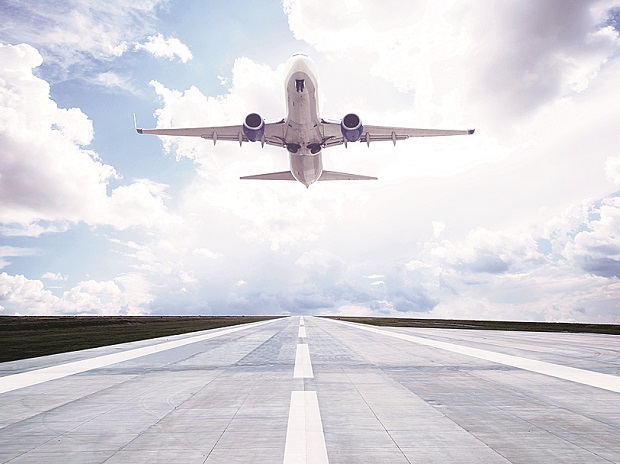Statistically speaking, air travel is among the safest modes of transportation—with commercial airliners being the safest method of all. Flying can also be one of the more confusing ways to travel with its ever changing rules and regulations. When preparing for a flight, many questions may cross your mind. Can I carry liquids; how much can my luggage weigh; what items can I put in my carry-on; can I fly with prescription drugs or an inhaler; how many drinks can I have on the plane; do I need to get to the airport hours in advance; what is considered courteous and appropriate behavior, etc, etc???
Although airplane travel is considered extremely safe, there are instances of disturbances, violence and belligerence. The potential for airplane disruption, coupled with the many changing regulations, has the capacity to evoke anxiety or fear in a traveler. The percentage that your airplane ride is going to be the safest part of your day is extremely high, despite its stressfulness. It’s important to know your rights while flying in order to keep you protected and equipped with the relevant information. The more you know about being a passenger in a plane, you will be empowered and enabled to take to the skies in a calm and safe manner.
Most of us will never forget the tragedies that happened in 2001 and many rules that have been implemented and enforced are a result of those devastating events. There have also been numerous other instances that have made headlines and stirred up controversy related to air travel and behavior on planes, both from travelers and airplane employees.
One of the major stories swirling around the news and making headlines is surrounding Dr. David Dao, who was dragged from a fully-booked United Express flight in Chicago because he refused to give up his seat to make room for crew members. Cellphone video of the incident sparked widespread outrage and created a public-relations nightmare for United Airlines. This ignited a policy change for the airline, as a result of this violent episode occurring.
Do you know your rights as an airline passenger? There’s an abundance of things to think about when traveling, so be informed and educated to fly the skies.
Following the surfacing of the of videos captured on the United Airlines flight, The Department of Transportation (DOT) launched a new webpage to help travelers better know their rights while flying. After a result of international uproar over airlines’ treatment of passengers, this prompted calls for congressional hearings and access to clear instruction that deals with consumer issues whilst flying. The DOT’s page, found at https://www.transportation.gov/airconsumer/flights-and-rights, includes topics such as tarmac delays, flights cancellations or delays, reservations and ticketing, refunds, accessibility, lost or damaged baggage, and bumping and oversales.
Before flying, we highly recommend reviewing the U.S The Department of Transportation’s Fly Rights: A Consumer Guide To Air Travel, for an in depth explanation of your rights.
Below we target some of the main concerns and questions regarding air travel and your rights. Let’s break it down so you’re safe and protected as best as possible.
Check out your rights and get ready to fly free and secure.
According to The U.S Department of Transportation:
- Complaints
As a customer, you have the right to file an air travel complaint. Complaints about airline service can be registered with DOT’s Aviation Consumer Protection Division (ACPD). To file a complaint, comment or inquire electronically, you may use this form.
- Tarmac Delays
An aircraft can’t stay on the tarmac at a U.S. airport for more than three hours on domestic flights and more than four hours on international flights without giving the passenger an opportunity to leave the plane. Exceptions to the time limits may be allowed for safety, security, or air traffic control-related reasons. The airlines are responsible for providing sufficient food and water, making sure that bathrooms are accessible and working properly, giving notifications and updates regarding status of the delay and, if necessary, provide medical attention.
- Flight Delays & Cancellations
For flight delays and cancellations that happen in seven days of the scheduled date of the flight, airlines must notify you of flight delays that are more than 30 minutes. They must also let you know about flight cancellations and diversions within 30 minutes of the airline becoming aware of a change in the status of a flight. The flight status information needs to be available in the boarding gate area for the flight at a U.S. airport, on the airline’s website, through an airline’s flight status notification service (if an airline offers that service) and through the carrier’s telephone reservation system.
- Reservations, Fares, Ticketing & Fees
Airlines are prohibited to increase the ticket price or bag fees after purchase.
Airlines must give the passenger a 24-hour grace period for ticket reservations. You can hold a reservation without payment or cancel without a penalty, 24-hours after making the reservation if it is done a week or more in advance of the flight date.
Airlines are required to reimburse you for any fee charged to transport a bag if that bag is lost.
Airlines have to refund you the fees charged for optional services (such as in-flight wifi or seat assignment fees) if you were unable to use the services due to an oversale situation or flight cancellation.
- Refunds
Purchases made with a credit card, the airline must forward a credit to the your credit card company within seven business days after getting a complete refund application when a refund is due. Purchases made with cash or checks, the airline must provide a refund within 20 business days.
- Accessibility & Discrimination
Accessibility: Airlines are required to accommodate the needs of air travelers with disabilities.
Discrimination: Airlines are prohibited from subjecting a person in air transportation to discrimination because of race, color, national origin, religion, sex, or ancestry.
- Lost, Delayed or Damaged Baggage
Airlines must compensate you for lost, delayed, or damaged bags. If a passenger’s bag is delayed, airlines will pay reasonable expenses while you wait. If a passenger’s bag is damaged because of rough handling, airlines will pay for the repairs or negotiate a settlement to pay you the depreciated value. If a passenger’s bag is lost, airlines will reimburse you the depreciated value of his or her lost belongings. Almost all airlines require that passengers submit a claim and provide documentation such as sales receipts to back up the claims in order to be provided compensation.
Airlines are required to accept all reports of mishandled baggage, even if an airline’s agent believes the airline is not liable.
- Bumping & Oversales (The United Flight Hot Topic!)
Volunteers: If a flight is overbooked, airlines are required to ask passengers to give up their seats voluntarily, in exchange for compensation. The airline must ask for volunteers before bumping anyone involuntarily.
Boarding Priorities (Criteria for Involuntary Denied Boarding): While it is legal for airlines to involuntarily bump passengers from an oversold flight when there are not enough volunteers, it is also the airline’s responsibility to determine its own fair boarding priorities. Usually, the situation is resolved prior to the actual boarding process. The criteria to bump someone off a flight cannot subject a passenger to any unjust or unreasonable prejudice or disadvantage.
Written Notice: DOT requires each airline to give all passengers who are bumped involuntarily a written statement describing their rights and explaining how the carrier decides who gets bumped.
Compensation: Passengers denied boarding involuntarily are entitled to compensation. It is based on the price of the ticket, the length of time they are delayed in getting to their destination because of being denied boarding, and if their flight is a domestic flight or an international flight leaving from the United States.
Amount of Required Denied Boarding Compensation: Domestic Transportation
0 to 1 hour arrival delay: No compensation
1 to 2 hour arrival delay: 200% of one-way fare (but no more than $675)
Over 2 hour arrival delay: 400% of one-way fare (but no more than $1350)
Amount of Required Denied Boarding Compensation: International Transportation
0 to 1 hour arrival delay: No compensation
1 to 4 hour arrival delay: 200% of one-way fare (but no more than $675)
Over 4 hour arrival delay: 400% of one-way fare (but no more than $1350)
Eligibility:
Airlines don’t have to issue compensation to a passenger who is involuntarily denied a seat on an aircraft if:
– a passenger does not comply fully with ticketing and check-in requirements
– the flight is unable to accommodate a passenger because of a substitution of equipment with fewer seats when required by operational or safety reasons
– an aircraft with 60 or fewer seats is unable to accommodate the passenger due to weight/balance restrictions for operational or safety reasons
– the passenger is seated in a section of the aircraft other than that specified on the ticket.
We recommend always staying as calm as possible while checking in, boarding and during your flight. Even if you feel like your rights have been violated, acting out against the behavior or incident may only further escalate the situation. Issues can be resolved without violence and in a civil manner with the assistance of airline workers, law enforcement and an attorney, if necessary.
The attorneys and staff of Schulze Law understand all federal, state, and local laws governing airline travel and aviation. We have the experience and knowledge required to assist you with any questions or concerns—no matter how complicated. If necessary, we can also gain the needed investigative cooperation from the National Transportation Safety Board (NTSB). If you have been charged with a crime, treated unfairly or have an inquiry regarding air travel, contact Schulze Law today.
Resources: https://www.transportation.gov/






